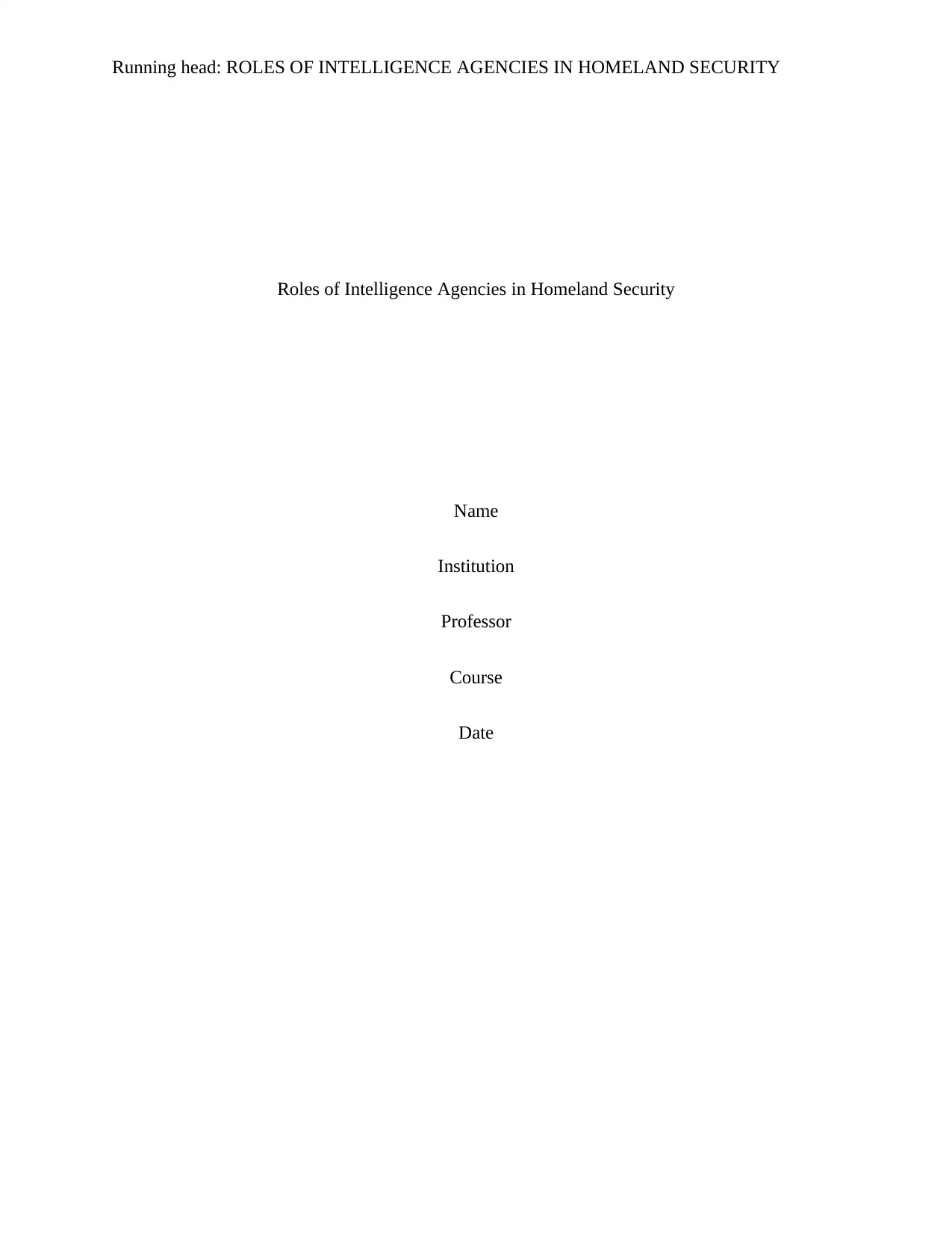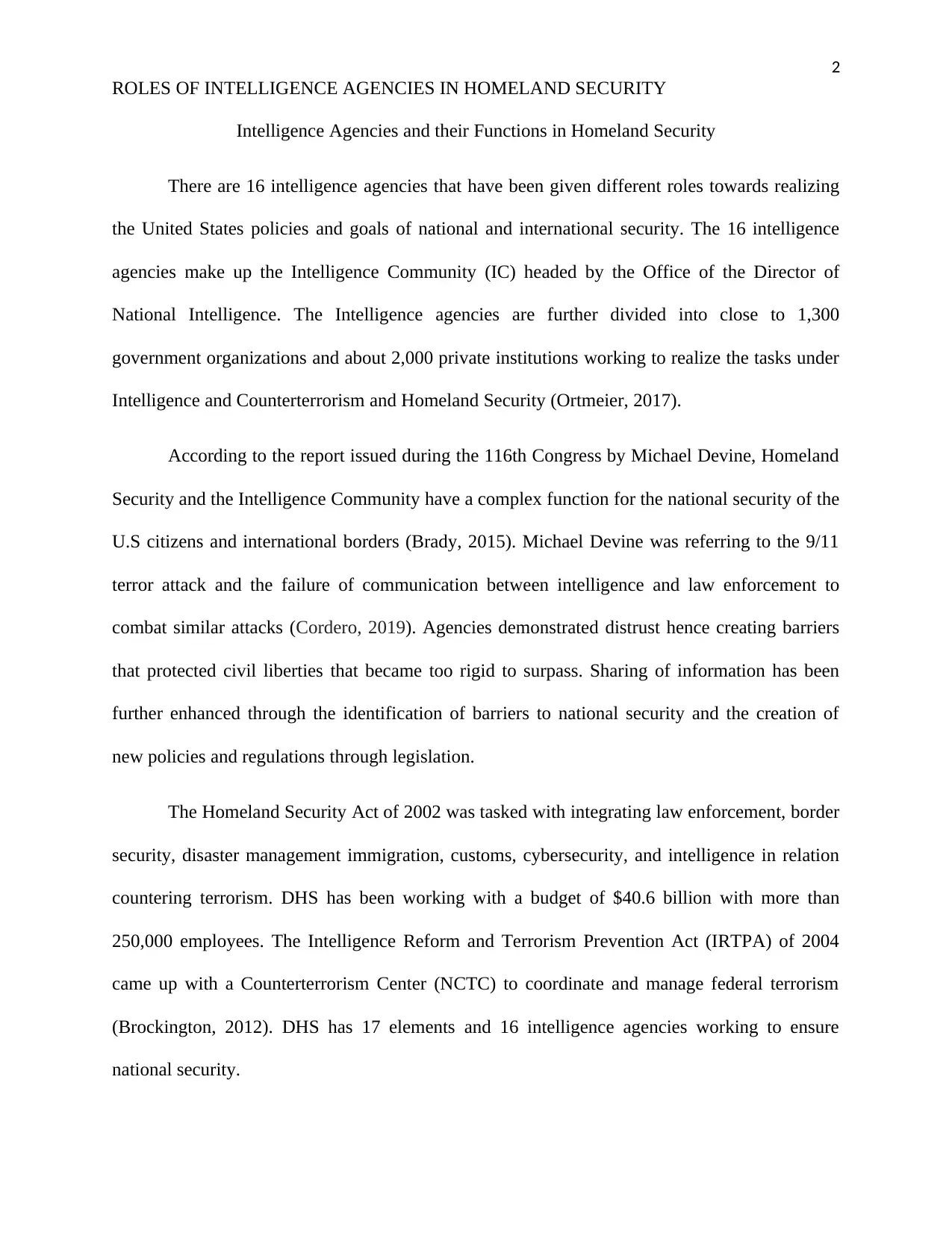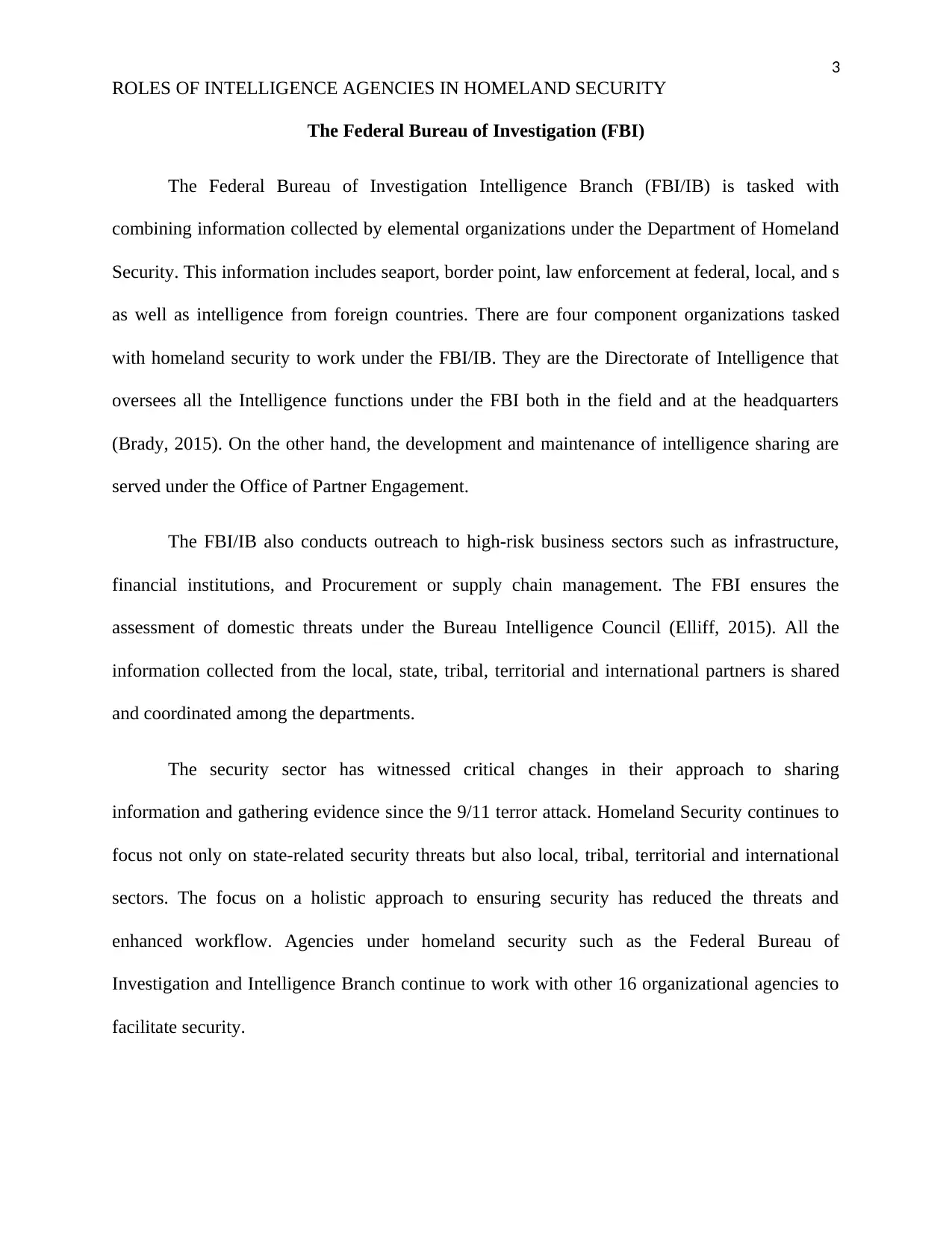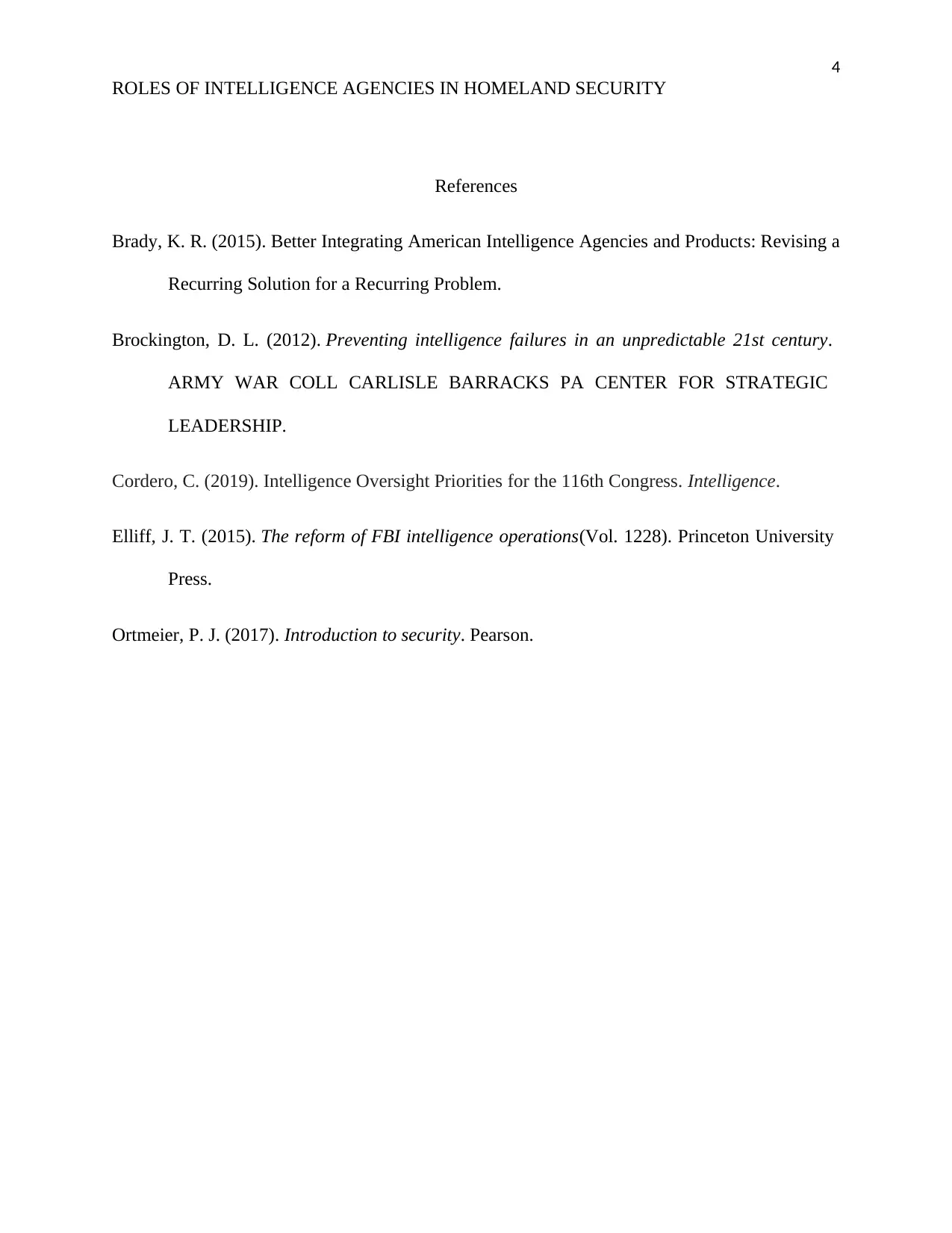Analysis of Intelligence Agency Roles in Homeland Security (Report)
VerifiedAdded on 2022/10/02
|4
|715
|207
Report
AI Summary
This report explores the multifaceted roles of intelligence agencies within the context of US homeland security. It begins by outlining the structure of the Intelligence Community (IC), highlighting the 16 agencies under the Office of the Director of National Intelligence, and their combined efforts with government and private institutions. The report emphasizes the significance of information sharing and collaboration among these agencies, particularly in light of the 9/11 attacks and subsequent legislation like the Homeland Security Act of 2002 and the Intelligence Reform and Terrorism Prevention Act of 2004. The Federal Bureau of Investigation (FBI) is examined in detail, focusing on its Intelligence Branch (FBI/IB) and its role in integrating information from various sources to assess and mitigate domestic threats. The report underscores the evolution in security approaches, emphasizing a holistic, collaborative model to reduce threats and improve workflow across agencies, including the FBI. It concludes by acknowledging the critical changes in information sharing and evidence gathering since the 9/11 attacks, and the ongoing focus on a comprehensive approach to security involving the FBI and other agencies.
1 out of 4











![[object Object]](/_next/static/media/star-bottom.7253800d.svg)